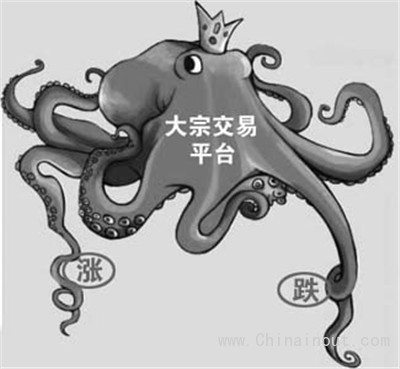隨著亞洲股市復(fù)蘇,急于將獲利套現(xiàn)的投資者以“大宗交易”方式拋售的股票達到了創(chuàng)紀(jì)錄規(guī)模,。
投資者們正利用活躍的市場氛圍及流動性的增加大手拋售股票,。2015年迄今,,以大宗交易方式換手的中國及印度公司股票的價值接近180億美元,是去年同期的三倍多,。
根據(jù)摩根士丹利資本國際亞太指數(shù)(MSCI Asia Pacific Index),,今年以來亞洲股市已上漲13%,相比之下標(biāo)普500指數(shù)(S&P 500)漲幅只有2.9%,。中國基準(zhǔn)指數(shù)上證綜指(Shanghai Composite)已躍升36%,。香港恒生指數(shù)(Hang Seng)本月已上漲13%,今年迄今漲幅為19%,。
賣家以私募股權(quán)集團為主,。本月,美國凱雷集團(Carlyle Group)以4.25億美元賣掉了手中剩余的海爾(Haier)股票,。與此同時,,中國弘毅投資(Hony Capital)拋空23%石藥集團(CSPC Pharmaceutical)股份,套現(xiàn)13億美元,。在香港上市的海爾是一家中國家電制造商,,而石藥集團則是一家中國制藥商。
在私募股權(quán)集團之外,,還有數(shù)宗企業(yè)股票出售及私有化案例,,比如印度政府就賣出了印度煤炭公司(Coal India)價值37億美元的股份。
上周,,日本第一三共株式會社(Daiichi Sankyo)以32億美元的價格,,拋售了所持的印度太陽制藥(Sun Pharma)的8.9%股份。此外,,雪佛龍(Chevron)以36億美元賣出其持有的澳大利亞加德士(Caltex)半數(shù)股份,,成為悉尼股市上交易金額最大的大宗交易。
活躍的市場情緒也促使企業(yè)考慮通過新股發(fā)行來利用當(dāng)前行情,。銀行則爭相將計劃已久的首次公開招股(IPO)提前,以滿足投資者的興趣,。
巴克萊銀行(Barclays)亞太區(qū)大宗交易發(fā)起部門主管杰克•易(Jack Yee)表示:“對于私募股權(quán)集團,,只要估值合適,往往能很快做出決定,,沒有各種監(jiān)管文件的問題和董事會決策程序的問題,。企業(yè)通常需要更長時間才能做出決定。不過我認(rèn)為,,很快你就會看到部分企業(yè)采取這種行動,。”
對于大宗交易的買方來說,吸引他們的是能以略低于公開市場的價格買入大量股份的機遇,。
高盛(Goldman Sachs)日本以外亞太區(qū)融資集團聯(lián)席主管龐建忠(Jonathan Penkin)表示:“(全球)投資者對中國大盤股的持有量依然不足,,大宗交易將成為人們增加相關(guān)敞口的途徑之一,。”
不過,這輪拋售大潮正在改變市場動態(tài),,迫使銀行家為大宗交易尋找新型買家,。通常而言,基金經(jīng)理是大宗交易的最大買家,,而且許多基金錯過了中國內(nèi)地股市的反彈以及最近香港股市的反彈,。
香港的銀行家們是不那么典型的買家,但他們披露正從企業(yè)和本地區(qū)富豪手里收購股票,,只為趕上這波行情,。中國的保險公司較普遍地參與大宗交易,尤其在購買中國股票方面,。
大宗交易對偏好快速交易的投行也是一大福利,。在極端情況下,投行會在收市后出價競買大宗證券,,在第二天開市前完成交易,。
一位地區(qū)性投行業(yè)務(wù)主管表示:“我情愿派兩三個人花兩三天時間緊跟一筆大宗交易,也不愿讓四個人在一只IPO上守半年,,而且后者利潤還不確定,。”
銀行通常根據(jù)最近的市場價對大宗證券報出折扣價,期待之后能以較小的折扣賣出,,以賺取差價,。雖然這些交易的短期性質(zhì)限制了價格波動的風(fēng)險,但一次出乎預(yù)料的下跌仍可能讓銀行虧本,。
最快的交易往往來自私募股權(quán)集團,,而交易額越大交貨時間越長,比如第一三共株式會社和雪佛龍的大宗交易,。
龐建忠表示:“長期關(guān)系比競標(biāo)更管用,,它會促成更合適、老實說也更有利可圖的交易,。”
據(jù)銀行家們表示,,大宗交易的激烈競標(biāo)已縮小了這類交易相對公開市場價格的折價幅度,對銀行來說,,這增加了交易出問題的風(fēng)險,。
德意志銀行(Deutsche Bank)亞洲股權(quán)資本市場團隊負責(zé)人赫曼特•沙貝瓦爾(Hemant Sabherwal)說:“從風(fēng)險角度來看,銀行或許覺得在出價方面可以比正常狀態(tài)下更大膽一點,,因為它們知道在目前的流動性環(huán)境下,,哪怕對市場估計不正確,也有較多機會能夠快速賣出,。”
流動性狀況和總體市場氛圍意味著目前應(yīng)該只有少數(shù)銀行還持有虧損倉位,。如果有跡象表明企業(yè)準(zhǔn)備利用這個市場,,只會進一步增加信心。(中國進出口網(wǎng))
Investors are selling large blocks of Asian shares in record amounts as they rush to book profits from resurgent markets.
Nearly $18bn worth of stock in Chinese and Indian companies has changed hands in “block trades” in 2015 so far — more than three times the amount in the same period last year — as shareholders take advantage of buoyant markets and improving liquidity to offload large stakes.

Asian stocks have gained 13 per cent this year, according to the MSCI Asia Pacific index, compared with 2.9 per cent for the S&P 500. China’s benchmark Shanghai Composite has jumped 36 per cent while Hong Kong’s Hang Seng index added 13 per cent this month for a 19 per cent gain so far this year.
The sellers’ charge has been led by private equity groups. This month Carlyle Group of the US sold its remaining stake in Hong Kong-listed Haier, the Chinese white goods maker, for $425m while China’s Hony Capital raised $1.3bn from unloading a 23 per cent holding in CSPC Pharmaceutical, a drugmaker.
Supplementing the private equity sales are company sales and privatisations, including the Indian government unloading $3.7bn of shares in Coal India.
Last week, Japan’s Daiichi Sankyo sold its 8.9 per cent stake in Sun Pharma for $3.2bn while last month, Chevron’s $3.6bn sale of its half-stake in Australia’s Caltex became Sydney’s biggest block trade.
The buoyant mood is also encouraging companies to consider tapping the market themselves with new share offerings, while banks are scrambling to bring forward long-planned initial public offerings to meet investor interest .
“If you’re private equity, you can often make quick decisions whenever the valuation is right without the issues of regulatory filings and board decisions,” says Jack Yee, head of block origination for Asia-Pacific at Barclays. “Companies generally take longer to make a decision but I think you’re going to see some make that move quite soon.”
Block trade buyers are attracted by the opportunity to buy big shareholdings at slightly cheaper prices than on the open market.
“[Globally] investors remain underweight the largest stocks in China and the block market will be one of the ways people can add exposure,” says Jonathan Penkin, co-head of Goldman Sachs’ financing group in Asia-Pacific excluding Japan.
However, the surge in sales is changing the dynamics of the market, forcing bankers to seek new types of buyers for the blocks. Fund managers are typically the biggest buyers of blocks, and many missed part of the rally in Chinese stocks in both the mainland and, more recently, in Hong Kong.
Less typically, Hong Kong bankers report buying from companies and the region’s wealthy tycoons, simply interested in playing the market. Chinese insurers have been more prevalent, particularly buying Chinese stocks.
Block trades have also proved a boon for investment banks that prefer rapid-fire deals. In the most extreme cases, bankers will bid for a block after the market closes and expect to complete the sale by the open the next day.
“I’d far rather have a couple of guys tied up on a block trade for perhaps a couple of days than put four on an IPO for six months wher the profit isn’t certain,” says one regional investment banking head.
Banks typically bid for blocks at a discount to the last market price in the expectation they will sell them on at a smaller discount, taking the spread as their fee. While the short-term nature of the deals limits the risk of market moves against the bank’s price, an unexpected market fall can still leave a bank with a lossmaking position.
The quickest deals tend to come from private equity while bigger ones, including the sales by Daiichi and Chevron, have longer lead times.
“Longstanding relationships are coming into play more than competitive bidding which makes for a better and frankly more profitable deal,” says Mr Penkin.
Fierce bidding for the blocks has narrowed the discount to the market price, according to bankers, increasing the danger of a deal turning sour for the bank.
“From a risk perspective, banks may feel able to be a little more aggressive in pricing than normal, knowing the liquidity environment is such that there is more chance of being able to trade out quickly even if you get the market wrong,” says Hemant Sabherwal, director in Deutsche Bank’s Asia equity capital markets team.
Liquidity and the general market mood means few banks, if any, are yet thought to have been left holding lossmaking positions. Any signs of companies preparing to tap the market is only likely to increase confidence further.








